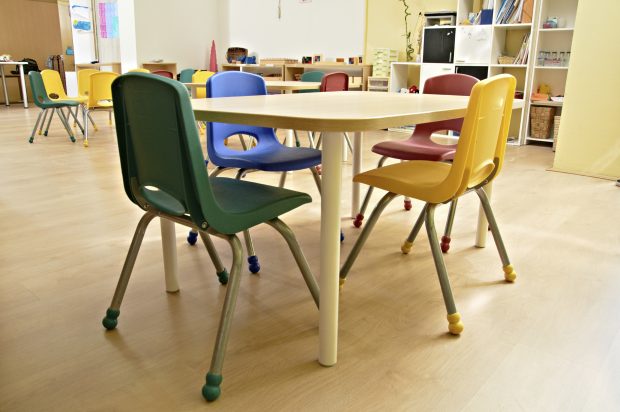Today’s news review looks at coverage of unregistered schools and home education, the OECD’s ‘Education at a Glance’ report, and the value of phonics testing in schools.
Home education and unregistered schools
Today, 16 September, the Local Government Association (LGA) has called for more powers to give councils the right to enter people’s homes and other premises to check the suitability of education being delivered to children.
The LGA also wants to see a clearer definition of a "school" to make it easier for Ofsted or the Department for Education to classify and close down illegal schools when they are uncovered.
The story has been covered by the Today Programme, BBC Online and The Guardian.
We are clear that the system needs to be as robust as it can be when it comes to protecting young people, while at the same time safeguarding the rights of parents to determine how and where to educate their children.
A Department for Education spokesperson said:
It is unacceptable for any child of compulsory school age not to be receiving a suitable education. We recognise parents may choose to home school their children and many do a good job, but it must be of a suitable quality. That’s why we have taken steps to ensure the system is as robust as it can be when it comes to protecting young people, while at the same time safeguarding the rights of parents to determine how and where to educate their children.
We are also clear that unregistered schools are illegal and unsafe and we are cracking down on them. We have announced an escalation of Ofsted investigations into unregistered schools, with additional inspectors dedicated to rooting them out, a new tougher approach to prosecuting them and a call to local authorities to help identify any settings of concern.
Education at a Glance report
Yesterday, 15 September, the Organisation for Economic Co-operation and Development (OECD) released its annual Education at a Glance 2016 report. It compares the UK to other OECD countries on a wide range of education outcomes from early years, primary and secondary to university and employment.
It found that UK adults are comparatively well qualified and unemployment is low, compared to other markets. Meanwhile UK expenditure on education is high.
The OECD's Head of Education, Andreas Schleicher, has also commented on selective schools, which was not part of the report. His comments have been reported in The FT and Daily Mail.
Our position on grammar schools remains clear and we will ensure that our consultation - Schools that Work for Everyone - looks carefully at issues including performance and social mobility.
A Department for Education spokesperson said:
Every child, regardless of background or ability, should have access to an excellent education.
We know that grammar schools provide a good education for their disadvantaged pupils and we want more pupils from lower income backgrounds to benefit from that.
Our proposals will ensure that any new and existing selective schools will prioritise the admission of disadvantaged pupils and that they support other local pupils in non-selective schools to help drive up educational outcomes. As set out in the consultation document, we are clear that relaxing restrictions on selective education can and should be to the betterment, not at the expense, of other local schools.
Phonics
Yesterday, 16 September, new research misleadingly claimed that phonics tests given to five- and six-year-olds do not assess the full range of phonics knowledge required as part of the national curriculum. The research was published by Jonathan Solity, honorary research fellow at University College London, and Cat Darnell, psychology researcher at the University of Birmingham.
This story has been covered by BBC Online and TES.
A Department for Education spokesperson said:
This research is misleading and does not reflect the true picture, as it only covers the first three years of the phonics check. We test a wide range of phonics knowledge from a range of content, but it would be impossible to test every aspect that is taught in a single check. Over time, as more tests are carried out, they will cover the full breadth of knowledge required under the curriculum.
Ensuring pupils have mastered the fundamental skills of mathematics and literacy when they leave primary school means they have a strong foundation to build on at secondary school and are less likely to fall behind. That’s why we have introduced a more rigorous curriculum, raised the standard we expect pupils to achieve by age 11 and placed more emphasis on phonics in the teaching of reading. That has led to an additional 120,000 six year olds being on track to become fluent readers.
Follow us on Twitter and don't forget to sign up for email alerts.
